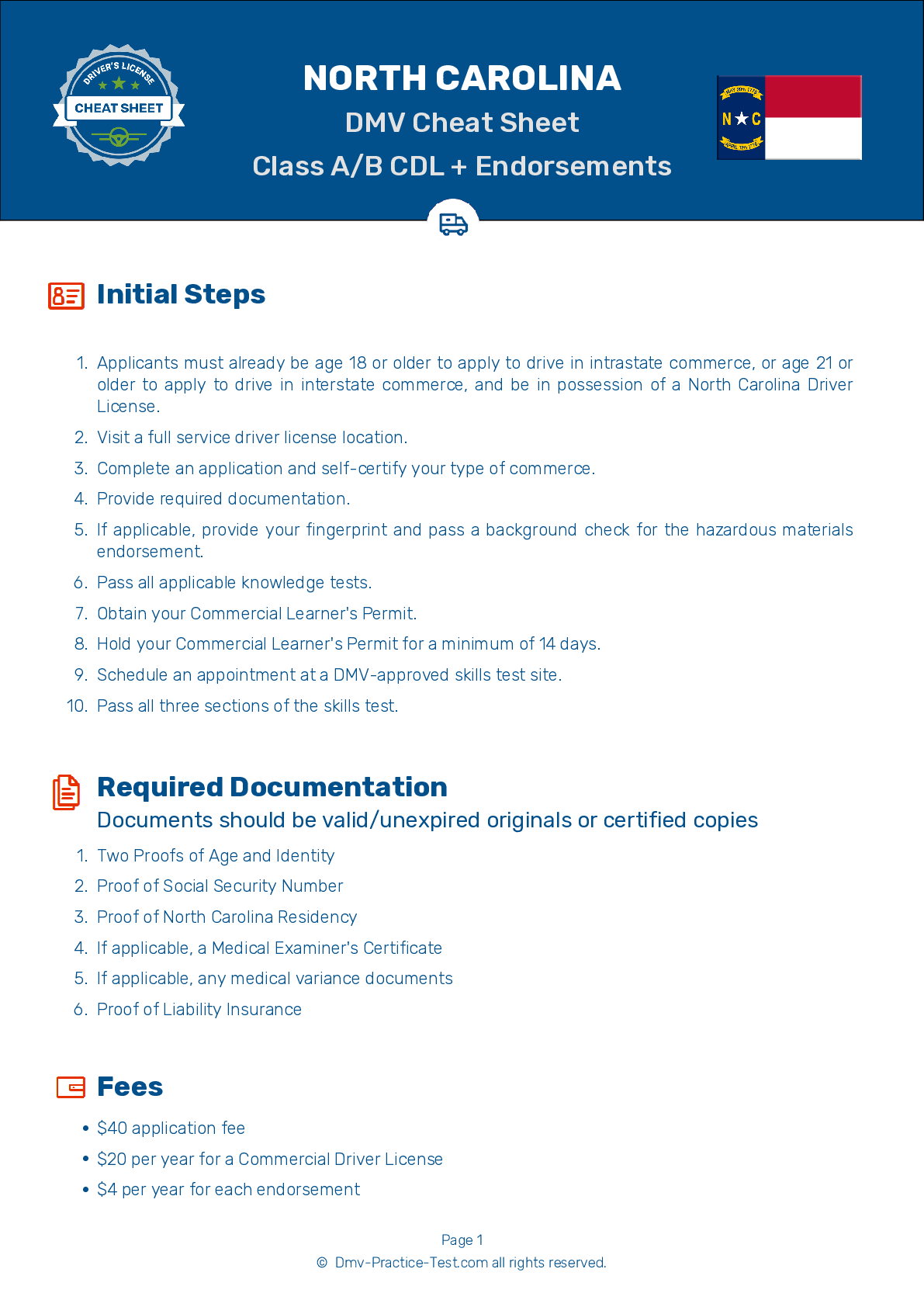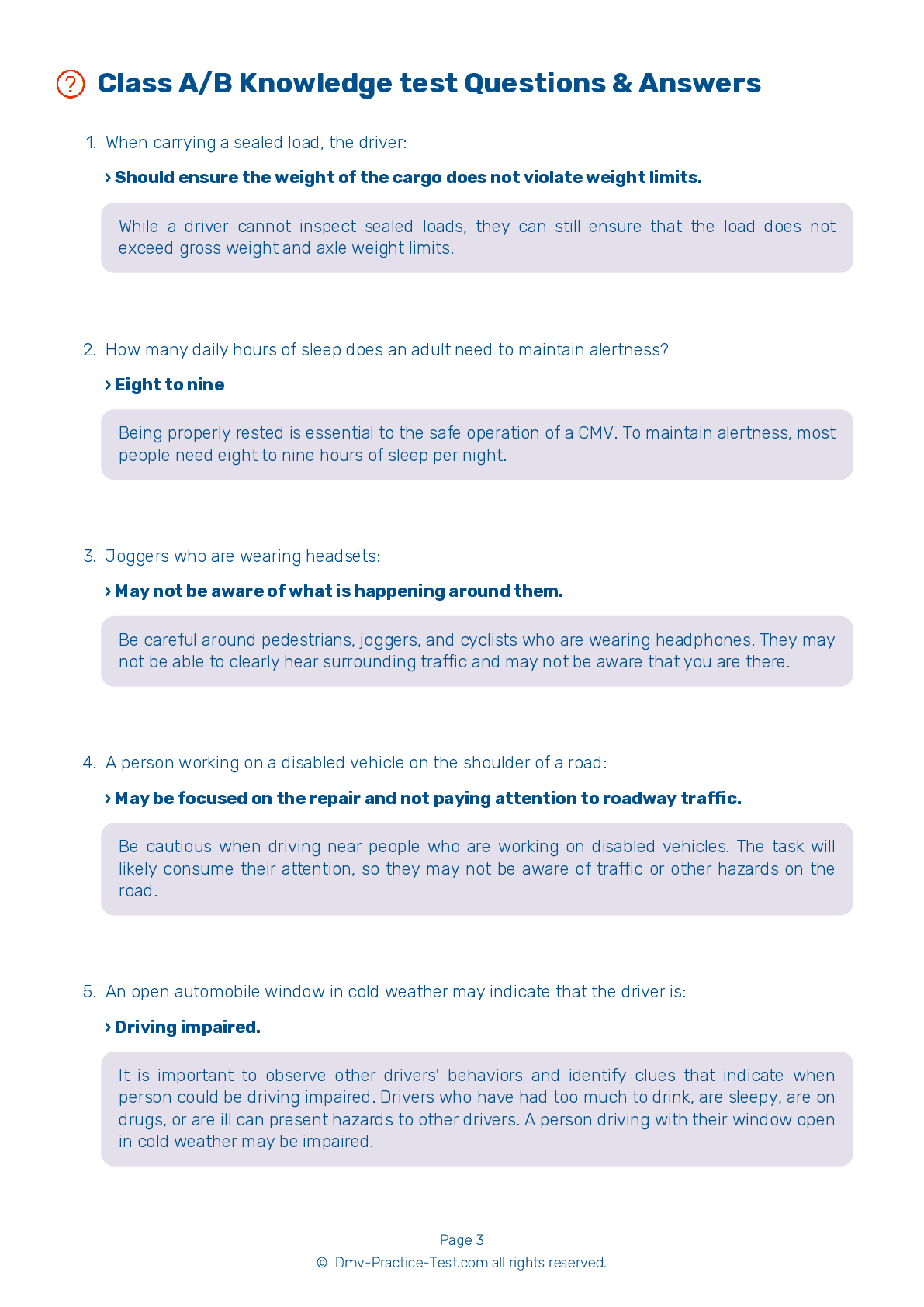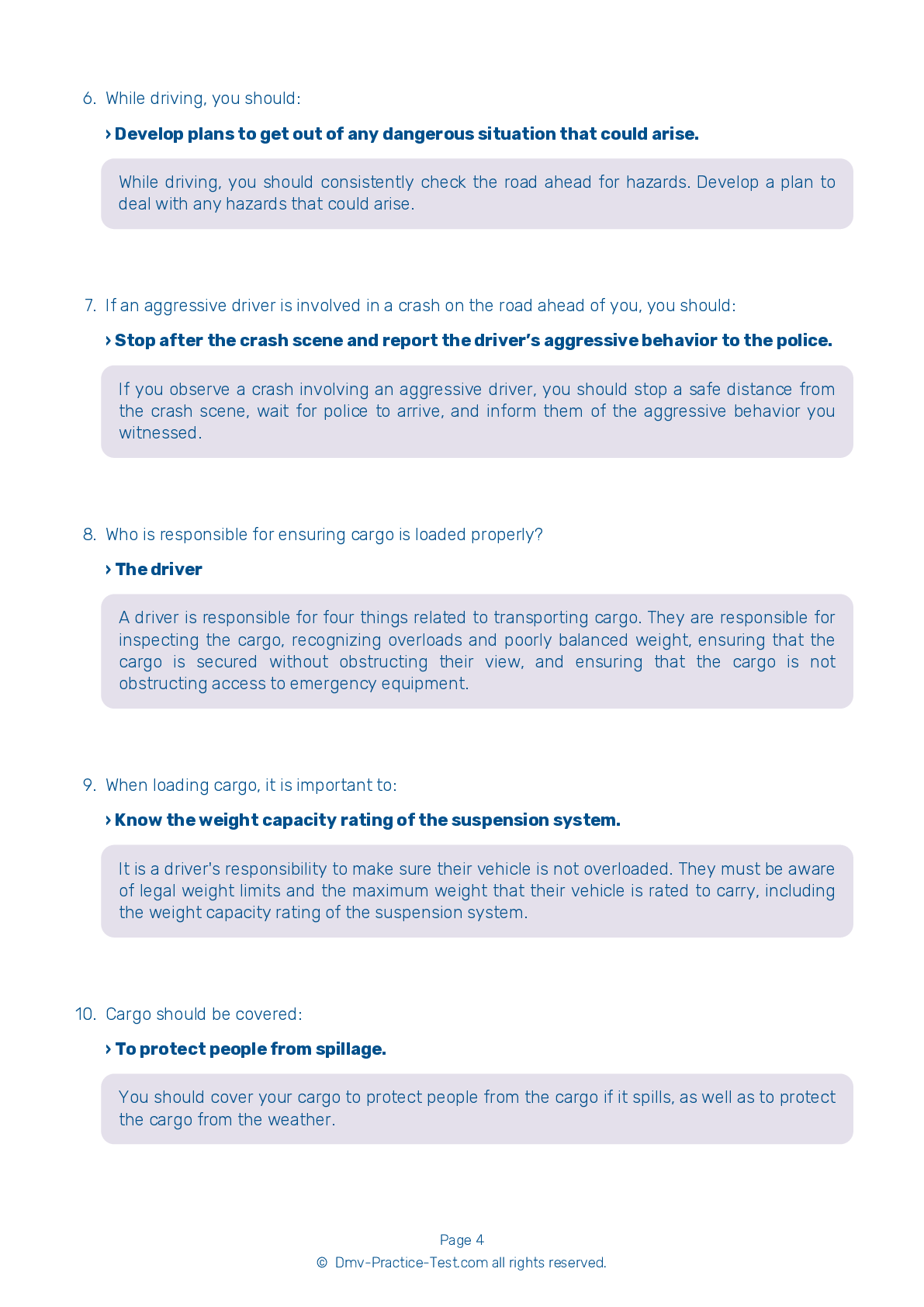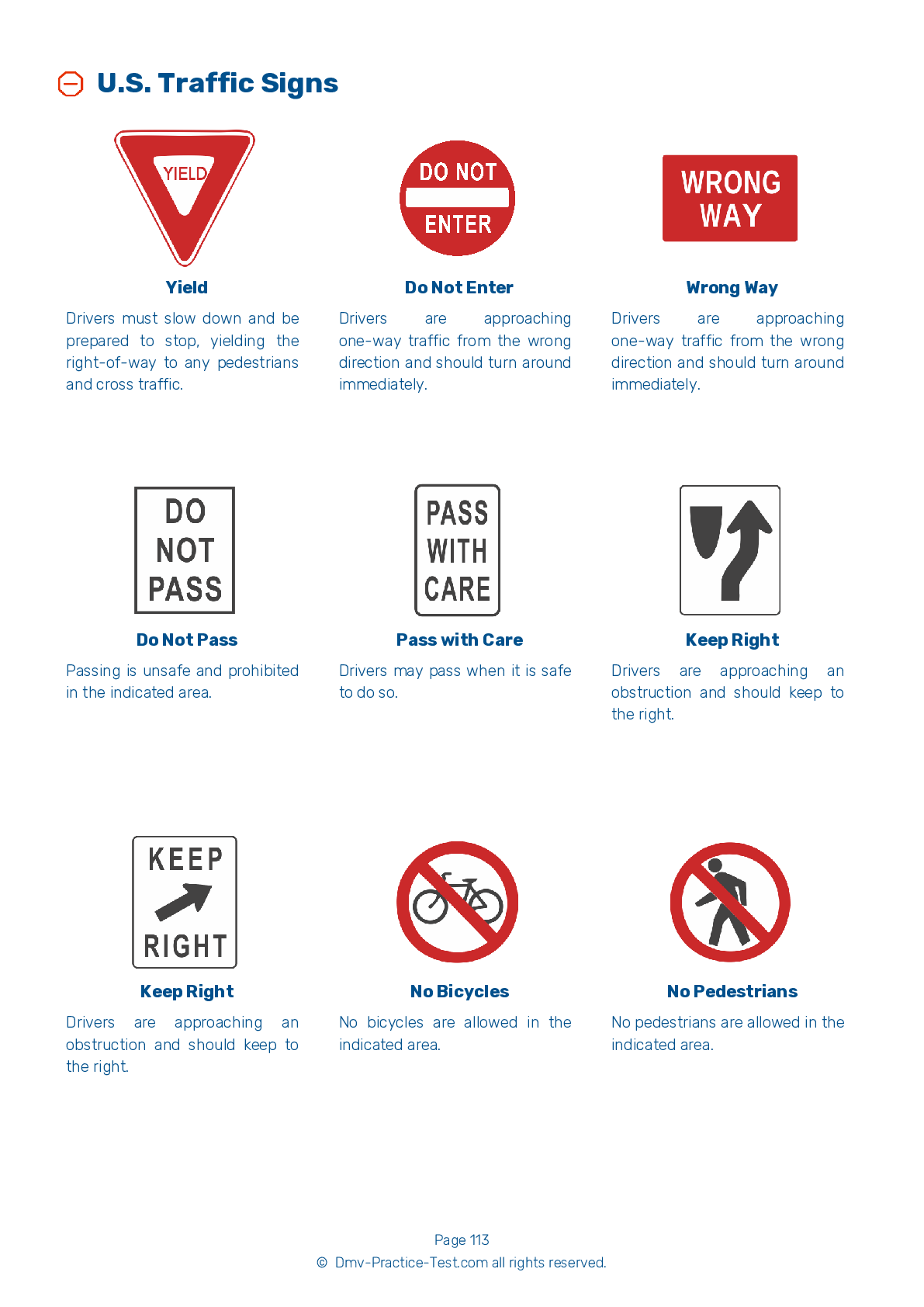Air Brakes Endorsement Test | North Carolina 2026 #2 Page 3 of 4
Train for FREE online with our North Carolina CDL air brake test. The official exam test consists of several obligatory parts, with all of them checking your knowledge of different blocks of road rules. If you need to obtain a NC Class A/Class B driver license in 2026, practice as much as possible. Free sample tests published on our website will help you check and improve your knowledge and boost your grades. Please bear in mind that the requirements for CDL may vary from state to state.
13 . If the safety relief valve in the air brake system releases air:
An air brake system has a safety relief valve, which releases air from the tanks if the pressure gets too high. If the valve must operate, something in the system is wrong and should be addressed by a mechanic.
14 . Before starting down a hill, be sure to:
Before starting down a hill, be sure to switch into a low gear. Gravity will increase your vehicle's speed as you travel downhill.
15 . Vehicles equipped with Anti-Lock Braking Systems (ABS) have ____ malfunction lamps to indicate when the ABS is not working.
Vehicles with ABS have yellow malfunction lamps to alert drivers when the braking systems are not working. Be sure you know where the malfunction lamp on your vehicle is before beginning a trip.
16 . During an applied leakage test, the maximum leakage rate for a double combination vehicle is:
It is important to know the maximum air loss rate that is safe for your specific vehicle. A double combination vehicle should have a leakage rate no higher than 4 psi in a minute during an applied leakage test.
17 . Most heavy-duty vehicles use:
Most heavy-duty vehicles use dual air brake systems, in which there are two separate braking systems operated by a single set of controls. Each system operates the brakes on different axles.
18 . Some air brake systems use alcohol:
Some air brake systems contain an alcohol evaporator. This device introduces alcohol into the braking system to inhibit the formation of ice.
See the exact questions that will be on the 2026 North Carolina DMV exam.
99.2% of people who use the cheat sheet pass the FIRST TIME
Lillian MCcranie explains how our CDL study guide was helpful in passing the exam and recommends it to everyone.
Cameron tells us how he purchased the CDL exam, and found it to be a useful tool which helped him pass the exam and find a job.



